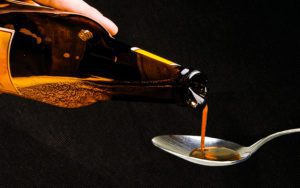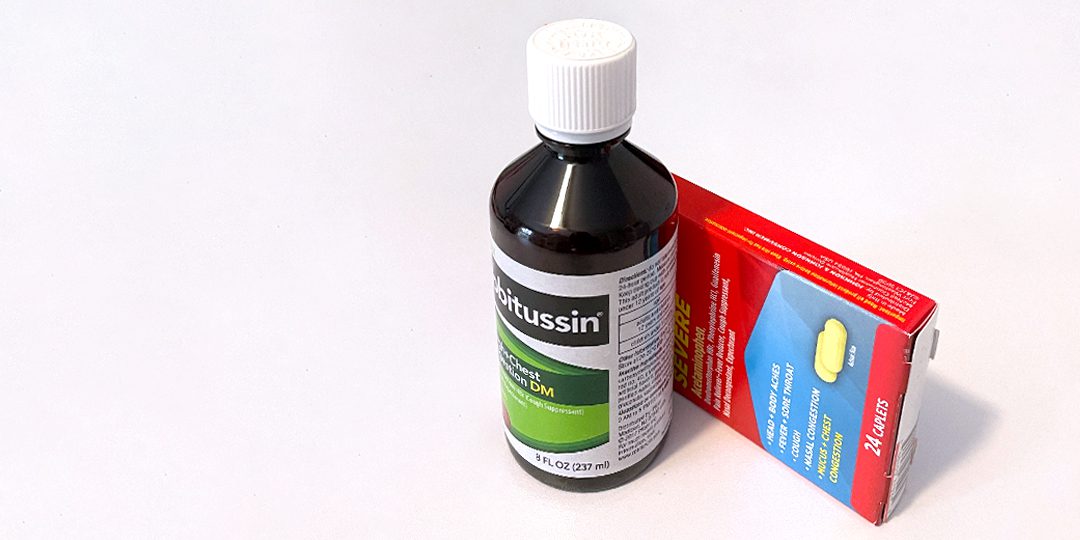Cold and flu season hits full stride between October and February, and though drugs and medicines continue to advance, people often ignore their side effects. Medications – old or new, over-the-counter or prescription – may do a great job of knocking out cold symptoms, but might they knock out a driver as well?
We’re not talking about illegal drugs here. You need not even go to a pharmacy for them. Some can be found in the grocery store. Is taking cold medicine a risky choice for drivers? Is driving on cold medicine illegal? What effect might a cold medicine have on a driver? Let’s dive in.
Are Cold Medicines Dangerous to Take When Driving?

Not all medications are controlled substances, and not all will prohibit driving while taking them. Some will warn against certain activities after taking them, and driving or “operating heavy machinery” may be on that list. Some may warn against combining the medicine with alcoholic beverages. Cold medicines may be the most likely to warn against such things, but antihistamine drugs used to treat allergies commonly do as well. You should screen your medication and make an informed decision about driving,
Is Alcohol the Ingredient I Should Watch Out For?

Aren’t sure if your medication contains alcohol? Again, check the label. You may also learn more by searching for your medicine here (press Ctrl + F to search). The linked document may not be complete or updated by the time you click, so just because your medicine does not appear does not mean it is alcohol-free.
You should know if your medicine contains alcohol but you should be wary of more than just alcohol. There’s more to worry about than DWI charges when driving under the influence of cold medicine.
Am I OK to Drive if My Cough Medicine Does Not Contain Alcohol?
Sorry to sound like a broken record, but read the label. Many medications that do not contain alcohol have other ingredients that may cause you to drive while drowsy or less alert. And remember that the law doesn’t just ban “driving under the influence of alcohol” – it includes driving under the influence of anything that could impair your ability to operate a motor vehicle safely.
You could conceivably get a DWI or DUI for driving under the influence of a medication without any alcohol in your system.
What if I Have a Drink While Taking Cold Medicine?
Some cold medicines contain active ingredients that, while not terribly limiting on their own, may become incredibly impairing when you combine them with an adult beverage. For example, many over-the-counter drugs contain a cough suppressant called dextromethorphan, including:
- Robitussin DM
- Delsym
- NyQuil syrup
- DayQuil syrup
- Mucinex DM liquid
According to the American Addiction Centers, dextromethorphan is a depressant and causes feelings of relaxation, sleepiness, and euphoria. It replaced the opioid codeine in cough medicines. Mixing dextromethorphan with alcohol can compound the side effects. Not only do you risk falling asleep at the wheel, combined effects can include:
-
- Irregular, slowed, or stopped breathing (respiratory depression)
-
- Dissociative or out-of-body feeling and related feelings of panic
-
- Brain lesions and associated memory loss, cognitive impairment, and emotional and behavioral changes
-
- Epilepsy
-
- Psychosis (which can be permanent)
Whether you’re taking cough medicine like DayQuil or allergy medicine like Claritin D, always read the label before your drive or drink alcohol – and especially if you do both.
Can I Get a DWI/DUI Driving on Cold Medicine?

If you feel that your medicine may affect your ability to pay attention, stay awake, or react while behind the wheel, don’t drive!
How Can You Tell if Someone Is Driving Under the Influence of Cold Medicine?
You can’t prove it – unless you’re a police officer whose training is admissible as evidence, or a breath, blood, or urine test confirms the presence of the medication. However, witness statements and observations, as well as evidence at the scene (including things like empty medicine packets), may offer circumstantial evidence.
Watch the at-fault driver if you can and ask yourself these questions:
-
- Do they appear drowsy, tired, or otherwise impaired?
-
- Is their speech slurred?
-
- Did they say something about not feeling well, or about taking medicine?
-
- Are they coughing or otherwise showing signs of illness?
Talk to the responding police officer about what you see. Ask questions. It may matter later!
What if I Am Hurt in an Accident Caused by Someone Driving on Cold Medicine?
The short answer is to contact a car accident lawyer. We can collect evidence, including the accident report, witness statements, and other key information, to build a more complete picture of why the crash happened. Our team is dedicated to investigating thoroughly on behalf of our clients.
Were you injured in an accident? Do you suspect that the at-fault driver was taking medication? You don’t have to be Sherlock Holmes – just call us at 1-866-900-7078 for a free case evaluation, and let us handle it for you.
You May Also Be Interested In
The Ultimate Guide to North Carolina DWI Law
Can You Drive After Taking Benadryl and Other Allergy Medicines?
What Impact Does Alcohol and Drug Use Have on NC Road Safety?
Driving High: What Marijuana Car Accident Statistics Teach Us




